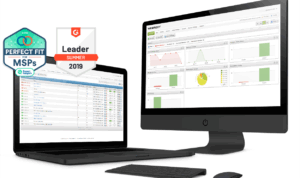Best ap automation software is revolutionizing the way businesses handle their accounts payable processes. With the rise of digital solutions, organizations are looking for ways to streamline operations, reduce errors, and save time. This software not only automates invoice processing but also enhances financial visibility and compliance, making it a game changer for companies of all sizes. As we delve into the importance and functionality of these tools, you’ll discover how they can transform your financial workflows.
From identifying the right features to understanding the benefits of automation, this overview aims to provide a comprehensive insight into the best options available. Whether you are a small business owner or part of a larger corporation, implementing the right ap automation software can significantly improve your operational efficiency and contribute to your overall success.
Mental health awareness has gained significant traction in recent years, becoming a critical topic of discussion in our society. However, despite the growing recognition, many individuals still harbor misconceptions about mental health issues, which leads to stigmatization and misunderstanding. In this article, we will delve into the importance of mental health awareness, the impact of stigma, and ways to promote a healthier understanding of mental well-being.
The Significance of Mental Health
Mental health encompasses our emotional, psychological, and social well-being. It affects how we think, feel, and act. Additionally, it influences how we handle stress, relate to others, and make choices. Mental health is crucial at every stage of life, from childhood and adolescence through adulthood. According to the World Health Organization (WHO), mental health is a state of well-being where individuals realize their potential, can cope with normal stresses of life, work productively, and contribute to their community.

Thus, understanding mental health is essential for overall well-being.

Common Mental Health Disorders
Mental health disorders are varied and can affect anyone, regardless of age, gender, or background. Some of the most prevalent mental health disorders include:
- Anxiety Disorders: Characterized by excessive fear or worry, anxiety disorders can lead to significant distress and impairment in daily functioning.
- Depression: This mood disorder causes persistent feelings of sadness and loss of interest, impacting an individual’s ability to function.
- Bipolar Disorder: This disorder involves extreme mood swings, including emotional highs (mania) and lows (depression).
- Schizophrenia: A severe disorder that affects how a person thinks, feels, and behaves, often leading to a distorted perception of reality.
- Obsessive-Compulsive Disorder (OCD): This disorder involves unwanted, recurring thoughts (obsessions) and repetitive behaviors (compulsions) that individuals feel compelled to perform.
The Impact of Stigma
Despite the prevalence of mental health issues, stigma remains one of the most significant barriers to treatment. Stigmatization occurs when individuals attribute negative stereotypes to those with mental health disorders, often leading to discrimination and social exclusion. This stigma can deter individuals from seeking help, fearing judgment or misunderstanding from others. It can also exacerbate feelings of isolation and hopelessness, creating a vicious cycle that can be difficult to break.
According to a study published in the journal Psychological Medicine, individuals with mental health issues often experience lower quality of life, not only due to their conditions but also due to the social stigma attached. The fear of being labeled as ‘crazy’ or ‘weak’ often prevents individuals from opening up about their struggles, leading to further emotional distress.
Promoting Mental Health Awareness
To combat stigma and promote mental health awareness, it is essential for individuals, communities, and organizations to engage in open dialogues about mental health. Here are several ways to foster understanding and support:
1. Education and Training
Providing education about mental health in schools and workplaces can enhance understanding and empathy. Training programs that focus on mental health first aid can equip individuals with the skills to support someone in distress. Knowledge is a powerful tool in dispelling myths and misconceptions surrounding mental health disorders.
2. Open Conversations
Encouraging open discussions about mental health can create a supportive environment for those struggling. Sharing personal stories can help normalize mental health issues and demonstrate that seeking help is a sign of strength, not weakness. When people feel comfortable discussing their challenges, it fosters an atmosphere of understanding and acceptance.
3. Advocacy and Policy Change
Advocating for mental health policies that promote access to care and support services is vital. Increased funding for mental health programs and services can improve accessibility for those in need. Advocacy groups play a crucial role in influencing policy and bringing attention to the need for systemic change in how mental health is perceived and treated.
4. Utilizing Social Media
Social media can be a powerful platform for raising awareness about mental health. Campaigns that promote mental health awareness, share resources, or highlight personal experiences can reach a broad audience. By utilizing hashtags and connecting like-minded individuals, social media can foster a sense of community and support.
Conclusion
Mental health awareness is essential for promoting understanding, reducing stigma, and ensuring that individuals feel supported in their journeys. As we continue to navigate the complexities of mental health, it is crucial to recognize the importance of open dialogue, education, and advocacy. By working collectively to raise awareness and promote acceptance, we can create a society where mental health is prioritized, and individuals are empowered to seek help without fear of judgment.
Remember, mental health matters. It is time we all contribute to breaking down barriers and fostering a culture of acceptance and understanding.
FAQ Section
What is accounts payable automation?
Accounts payable automation is the use of software to streamline and digitize the invoice processing and payment workflow, reducing manual effort and increasing efficiency.
How can AP automation software save money?
It can save money by reducing labor costs, minimizing errors, and improving cash flow management through timely payments and better tracking of expenses.
Is AP automation suitable for small businesses?
Yes, AP automation can be highly beneficial for small businesses by allowing them to manage their finances more effectively, even with limited resources.
What should I look for in AP automation software?
Look for features like ease of integration, user-friendly interface, reporting capabilities, and strong customer support.

Can AP automation help with compliance?
Absolutely, it helps maintain compliance by providing audit trails, ensuring accurate record-keeping, and adhering to financial regulations.










